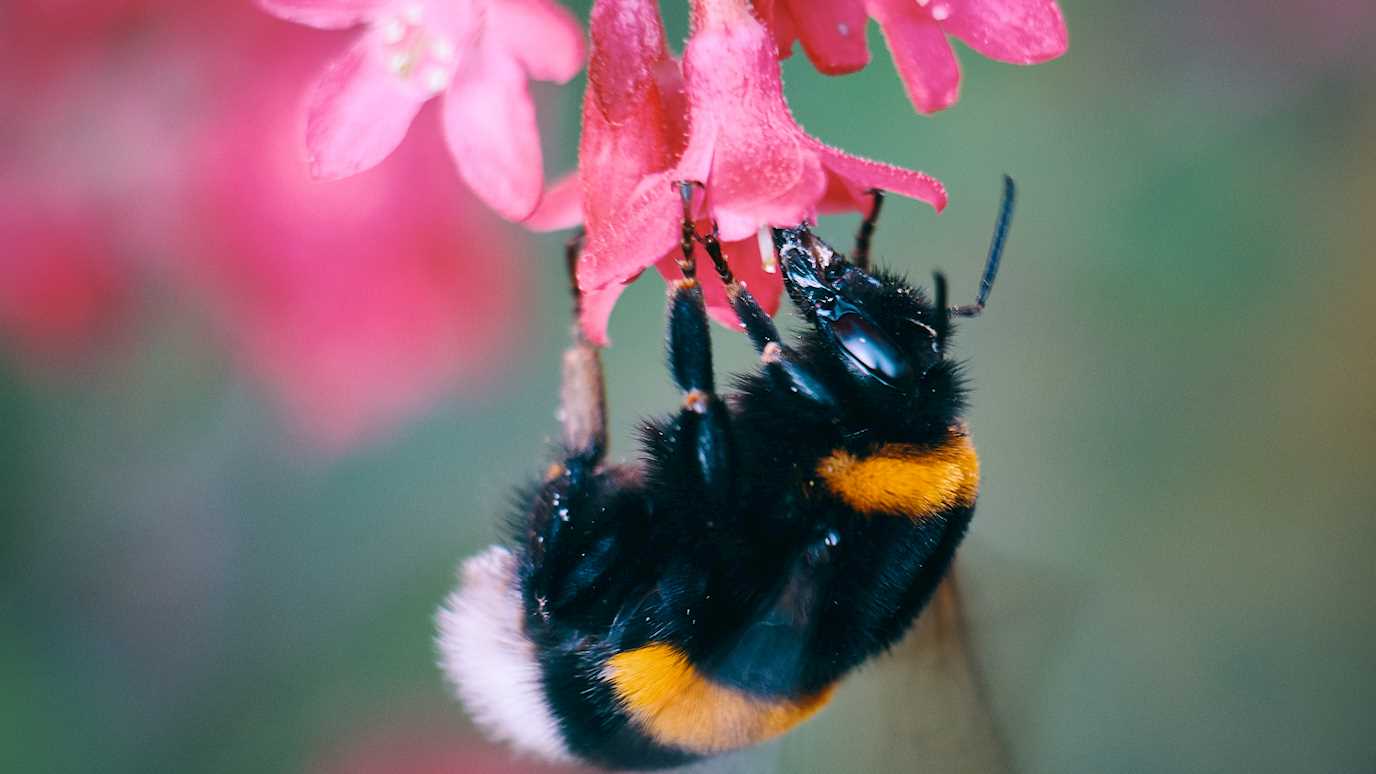A new study by researchers at Royal Holloway, has concluded that weed killers, bought by many households across the country and used in agriculture, could easily be redesigned to be more bumblebee friendly by changing ingredients and therefore saving the lives of bees.

PhD student, Ed Straw, and Masters Degree student Edward Carpentier, alongside Professor Mark Brown, all from the Centre for Ecology, Evolution and Behaviour in the Department of Biological Sciences at Royal Holloway, researched the effects of weed killers on bumblebees.
Their research showed that, after the bees came into contact with certain well-known weed killers, sold under the brand of Roundup®, up to 96% of the bees died within 24 hours, compared to other weed killers, such as Weedol® which caused no fatal harm.
The mortality rate of other weed killer brands is thought to be due to the ingredients used in the weed killer itself, blocking the breathing holes and gas exchange system of the bees, essentially drowning them, and gelling the bees hair together.
The research was conducted with a range of weed killers, including those available to buy in supermarkets and used exclusively by farmers.
During the research, it was determined that Weedol® proved safe for bumblebees as it caused no mortality rates. A range of other weed killers from the same company all caused mortality.
This could be because, despite the main ingredient in these sprays being glyphosate, which was previously thought to do the most harm to bees, it was actually not the cause of death of bumblebees, but more the other ingredients, known as co-formulants, which caused the mortality.
Lead author Ed Straw from Royal Holloway, said: “Weed killers are not typically thought of as dangerous to bees, and because of this farmers are allowed to spray weed killer directly onto flowering plants while bees are visiting them.
“However, our research has shown that if bees come into direct contact like this, depending on the weed killer used and its ingredients, it could be very deadly.”
Edward Carpentier, also from Royal Holloway added: “Weed killers are the most widely used type of pesticide in the world, and now we know they can be dangerous to bees we need to reassess how to use them in a way that won’t harm bees.
”Our research has shown that manufacturers need to be more transparent in their list of ingredients and also look at what they are using in their formulas which makes one weed spray safer than another.
“This is a huge problem for our pollinating friends, but could be a very easy fix.”
Professor Mark Brown from the Department of Biological Sciences at Royal Holloway said: “Wild bees, like bumblebees, are essential for wildflowers and crops – without them we would lose both biodiversity and food security.
“Worryingly, wild bees are declining around the world, and although we still don’t know exactly why, studies like this bring us closer to understanding.
“This research shows that the indiscriminate use of weed killers in agricultural and urban areas could pose a real threat to bee health, but also that simple changes in both behaviour and the composition of weed killers could remove this danger immediately.”
























